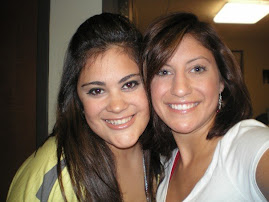- Service
- Charity
- Altruism
- Community
- Action
- Understanding
- Contribution
- Compassion
- Reflection
- Relationships
- Perspective
- Participation
- Predispositions
- Insight
Kahne and Westheimer had a very powerful argument that is somewhat difficult to put into my own words. They basically talk about charity versus change. Students need to go into service learning with open eyes and gain perspective about the negative social situations in their community. These projects should not promote pity but understanding.
Evidence:
· “It lay in the analytic and academic skills, the moral acuity, and the social sensitivity they would develop as they learned to assess critically and respond collectively to authentic problems”.
· “They call for a curriculum that emphasizes critical reflection about social policies and conditions, the acquisition of skills of political participation, and the formation of social bonds”.
· “The importance of a meaningful reflective component becomes clearer when one considers the kind of deliberation and student empowerment that such a curriculum can foster”.
This article presented a very clear argument about what the authors thought the purpose of service learning should be. Every time that I had a counterargument they seemed to know what I was thinking and answer my questions. They showed the pros and cons of service learning in the curriculum and I totally agree with what they had to say.
The words that were repeated constantly were charity and change. I think they were trying to talk about a gap between the people being helped, and the people helping them. In the article it says that in the curriculum “[the institution] stress the importance of civic duty and the need for responsive citizens”. This made me think of our class the other day when a lot of people felt bad for the kids in the school system with social problems. When the curriculum says it is our duty it makes it seem like a job instead of a way to become educated. The whole reason why service learning is linked to education is because the objective is to gain knowledge and make positive changes. There needs to be perspective and insight that go along with helping others and one of the only ways to do that is to interact as well as build relationships. In the classroom there needs to be reflection and critique to promote further inquiry.
It is the schools duty to teach students why things are the way that they are. The authors mention that President Bush promotes community service however, “he made no mention of changes that address the structural injustices that leave so many in need”. Students need to be able to understand the areas that they are working in and the problems that the people face. I like it when the authors say “citizenship in a democratic community requires more than kindness and decency; it requires engagement in complex social and institutional endeavors”. This is the only way that future generations can make changes in the institutions that they might become a part of. They will remember why the people of a certain area were in need and what they can do in order to fix it. This is just like what Laura Christensen did when she taught students about the secret education of the media. With this education she also gave students the opportunities to make changes.
With my own experiences in the service learning project in the discussions in class I can honestly say that I have acquired a “lens of justice”. I know what works in a classroom and what doesn’t. I also know that most of the kids that I help don’t need pity. They need someone to give them extra help as well as listen to them. Learning about the problems related to S.C.W.A.A.M.P has opened my eyes significantly and I can feel confident in speaking about the problems with our society. I only wish that I would have been able to talk about all of these things so much sooner. I think the earlier that children are taught about diversity the better off they will be.




No comments:
Post a Comment